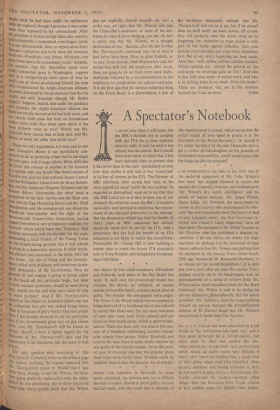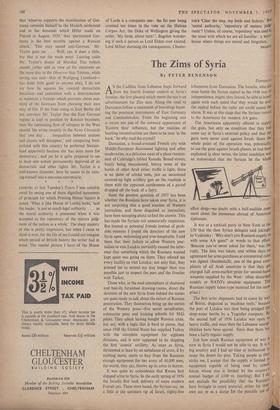MR. A. J. P. TAYLOR has been described by Lord
Attlee as 'the well-known television star,' and a very good performer he is. Unfortunately, like other stars he does not confine his tele- vision personality to television. And pyrotechnics which would no doubt sound very brilliant if heard after lunch on Sunday lose a good deal of their glitter when read after breakfast. They become nonsense and boring nonsense at that. In last week's Sunday E.vpress, for instance, Mr. Taylor informed his readers—amongst other things—that the European Free Trade scheme is 'just another name for Hitler's New Order,' that 'whoever supports the reunification of Ger- many commits himself to the Munich settlement and to the demands which Hitler made on Poland in August, 1939,' that 'partitioned Ger- many is the best security against a Russian attack.' 'This may sound anti-German,' Mr. Taylor goes on. . . . Well, yes, it does a little, but that is not the main point. Leaving aside Mr. Taylor's praise of Marshal Tito (which sounds rather odd in view of his statement on the same day in the Observer that Titoism, while saving one soul—that of Wolfgang Leonhard— has done little good to anyone else), 1 do not see how he squares his vaunted democratic Socialism and radicalism with a determination to maintain a frontier which prevents about one- third of the Germans from choosing their own way of life. If the June rising in East Berlin did not convince Mr. Taylor that the East German regime is kept in position by Russian bayonets, then the continuing flow of refugees to the West should. He wrote recently in the News Chronicle that 'one day . . . inequalities between nations and clasSes will disappear,' and comparing Swit- zerland with this country he preferred Switzer- land apparently because she 'has done more for democracy'; and yet he is quite prepared to see at least one nation permanently deprived of its democratic and other rights. Mr. Taylor is a well-known dissenter; here he seems to be turn- ing himself into a one-man conventicle.

































 Previous page
Previous page